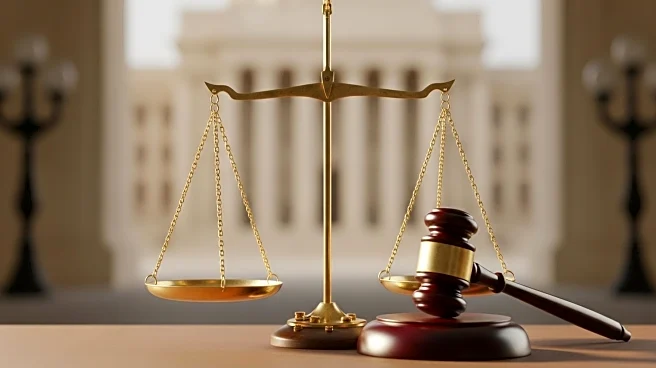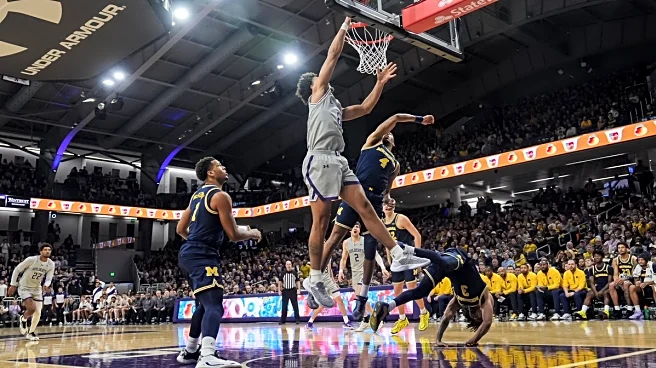What's Happening?
A coalition of healthcare providers, religious groups, university professors, and others have filed a federal lawsuit in San Francisco challenging President Trump's new $100,000 fee for H-1B visa applications. The lawsuit argues that the fee disrupts employers, workers, and federal agencies, and threatens the ability of hospitals, churches, and schools to retain essential staff. The H-1B visa program, designed to attract high-skilled workers, is crucial for filling specialized roles in the U.S. economy. Critics of the fee claim it is an anti-immigration measure that prioritizes wealth over scientific talent and innovation.
Why It's Important?
The lawsuit highlights significant concerns about the impact of the fee on U.S. industries that rely on skilled foreign workers, such as healthcare and education. The fee could deter talented individuals from contributing to critical sectors, potentially stifling innovation and economic growth. The legal challenge also raises questions about the executive authority to impose such fees, suggesting potential legal and political ramifications. If the fee is upheld, it could lead to a shortage of skilled workers, affecting service delivery and economic competitiveness.
What's Next?
The court's decision on the lawsuit will be pivotal in determining the future of the H-1B visa program and the fee's legality. Stakeholders, including businesses and educational institutions, are likely to closely monitor the case, as its outcome could influence hiring practices and workforce planning. The lawsuit may also prompt further debate on immigration policy and executive powers, potentially leading to legislative or regulatory changes.
Beyond the Headlines
The fee's introduction and subsequent legal challenge underscore broader tensions in U.S. immigration policy, particularly regarding the balance between protecting domestic workers and attracting global talent. The case may also influence public discourse on the role of immigration in economic development and innovation.











